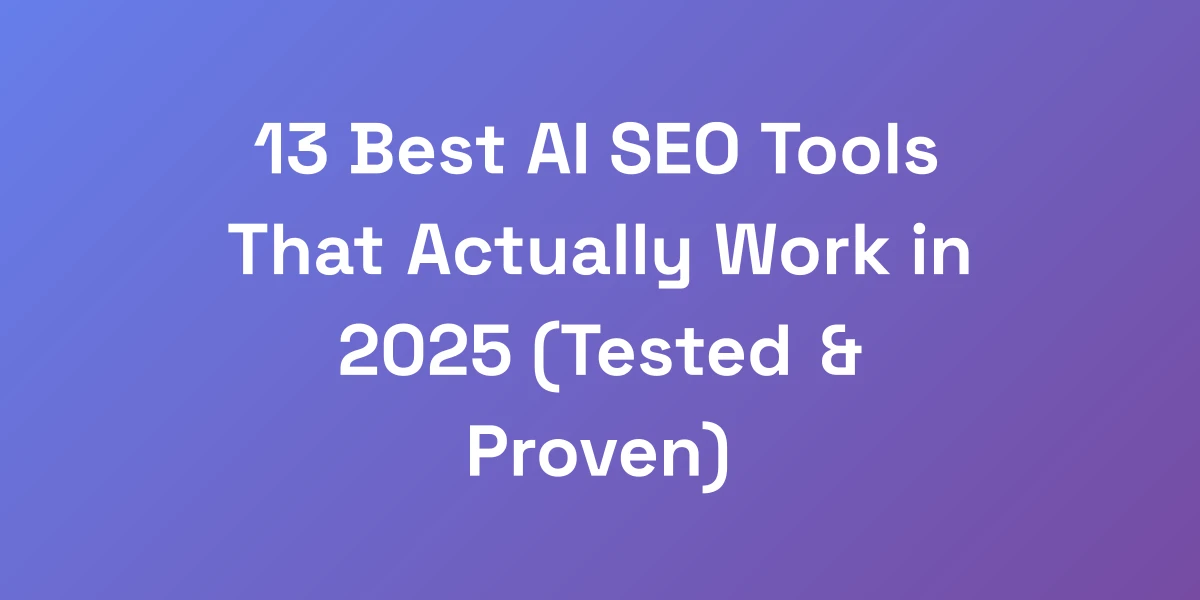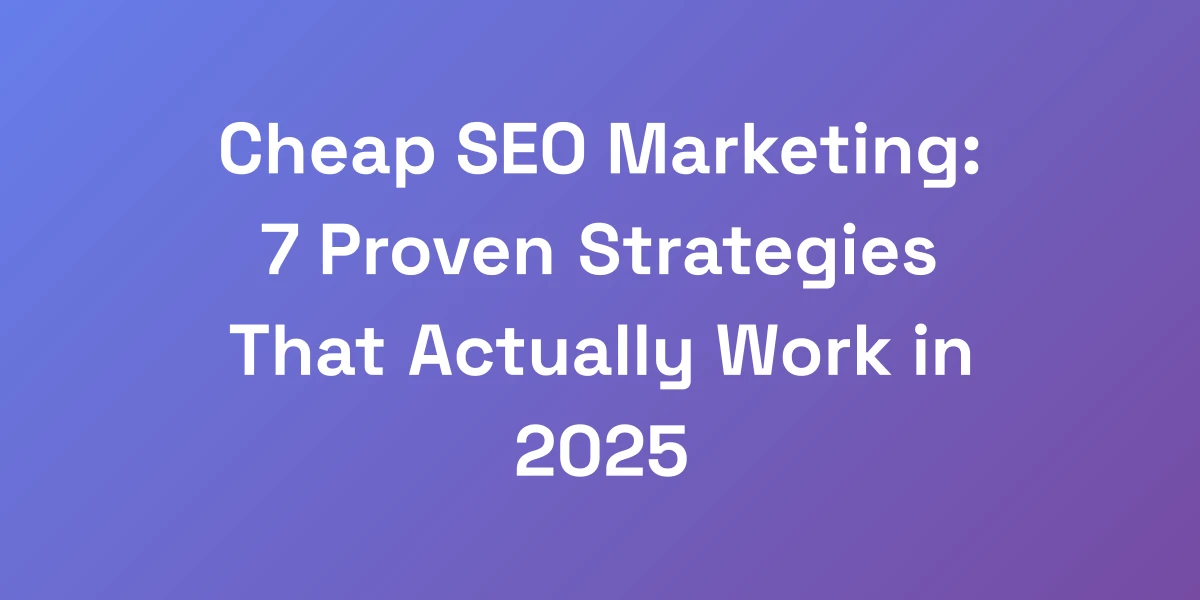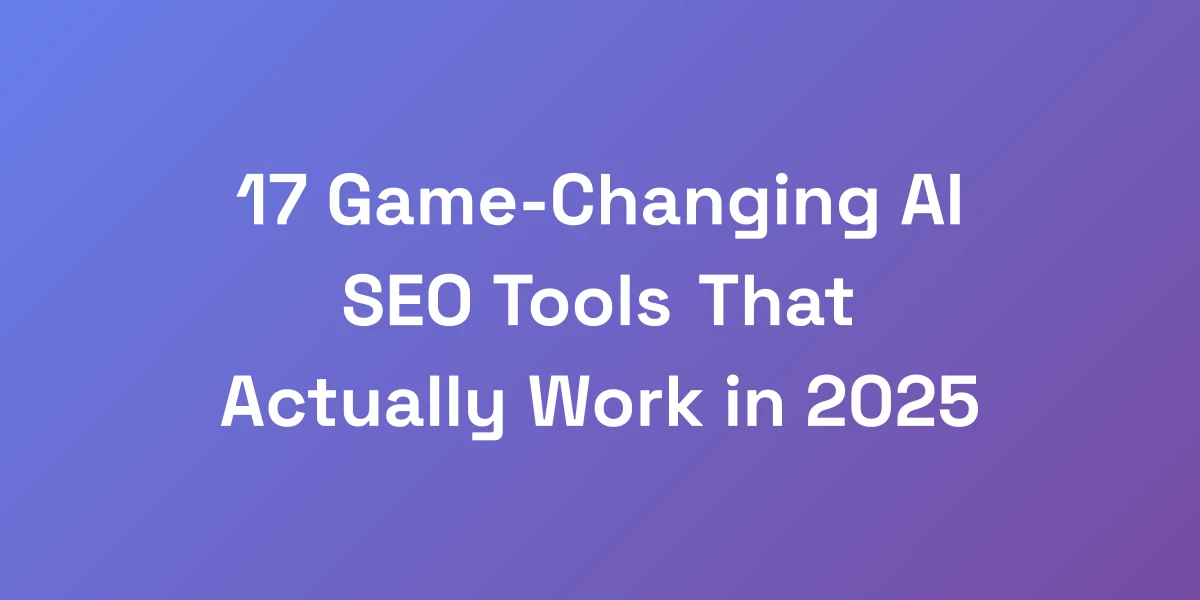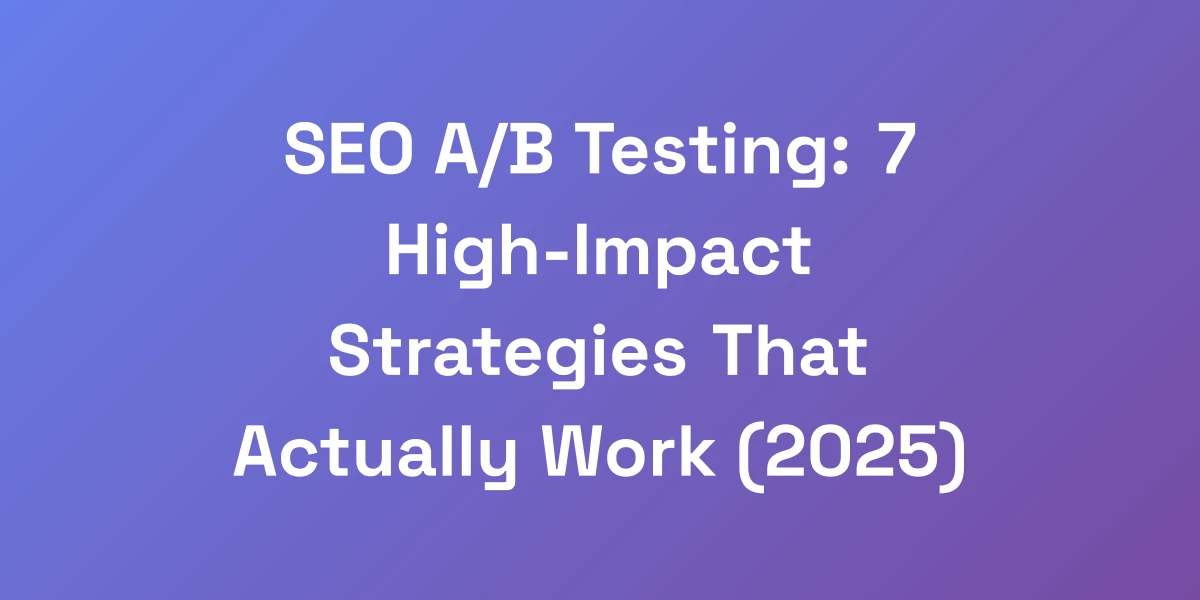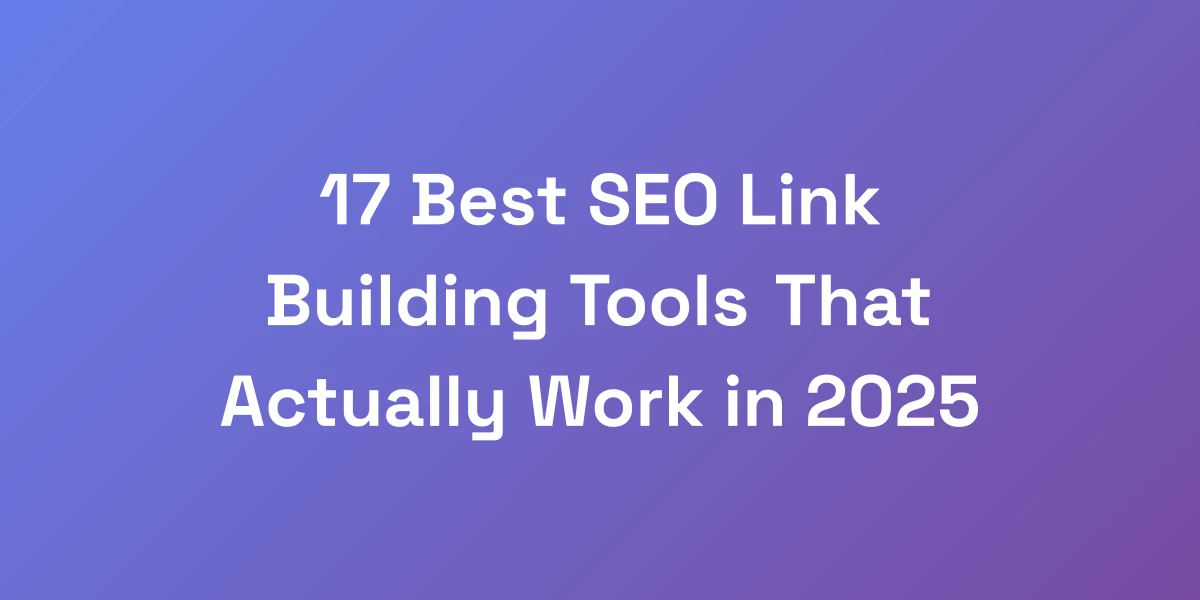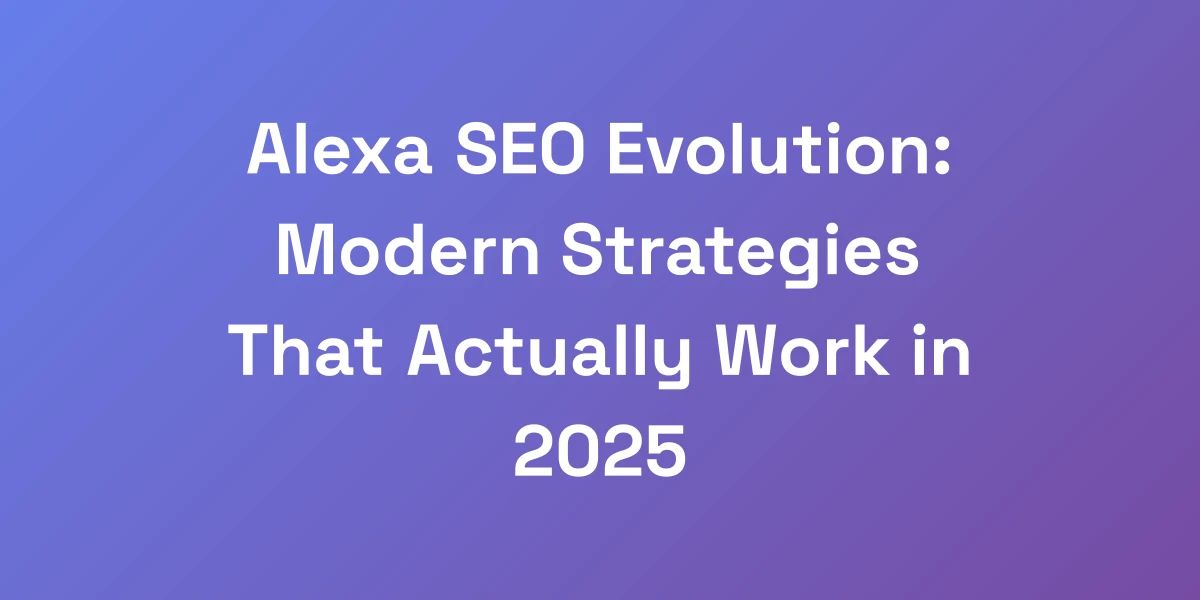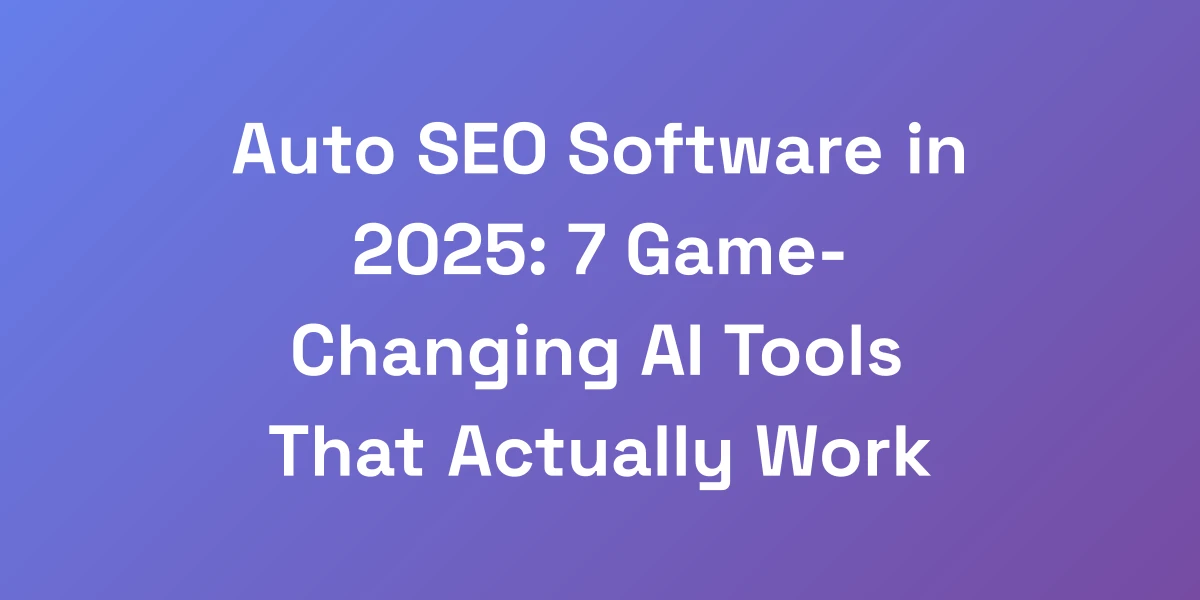
AI for SEO in 2025: 12 Proven Tools & Strategies That Work
Feb 11, 2025 | By zishansami102@gmail.com
AI and SEO. It’s a pairing that’s been whispered about in tech circles for years, but now it’s exploded onto the main stage. With 2025 upon us, it’s more than just whispering—it’s a full-blown chorus. The question isn’t whether AI will change SEO, but rather, how SEO professionals can wield this new toolset effectively.
The reality is that AI isn’t some mythical beast that will skyrocket your site to the top of Google overnight. However, it is a potent ally that, when used wisely, can double your efforts and amplify your results. In this article, we’ll delve into how AI is reshaping SEO practices, the essential tools you need in your arsenal, and strategies to leverage AI for maximum benefit.
We’ll also dissect the limitations of AI in SEO and discuss why human expertise remains irreplaceable. By the end of this read, you’ll arm yourself with actionable insights and a clear strategy for integrating AI into your SEO workflows. Ready to dive in?
The Current State of AI in SEO: A Reality Check
How AI is Reshaping SEO Practices in 2025
The intersection of AI and SEO has seen rapid evolution. AI tools are now automating up to 44.1% of key SEO tasks, transforming content creation, keyword research, and even technical audits. However, it’s critical to avoid the trap of over-reliance.
AI excels in processing large datasets swiftly, offering insights that were previously laborious to glean. For instance, AI-generated content now represents 13.08% of top-performing Google content, a stark rise from earlier years. But, despite these advances, only 28% of SEO professionals have fully integrated AI into their strategies according to recent statistics.
Key Benefits and Limitations of AI in SEO
The benefits of AI in SEO are manifold:
- Efficiency: Automates repetitive tasks, freeing up time for strategic planning.
- Data-driven insights: Provides comprehensive analyses from vast datasets.
- Content generation: Powers scalable content creation, like Bankrate.com’s AI-driven content success as highlighted in industry reports.
However, AI’s limitations are equally notable. AI lacks the nuanced understanding of context, cultural nuances, and emotional resonance that human content creators possess. This gap necessitates a balanced approach, marrying AI’s strengths with human expertise.
The Role of Human Expertise in AI-Powered SEO
While AI can suggest keywords and optimize site structures, the strategic decisions and creative flair still rest firmly in human hands. SEO professionals provide the critical contextual understanding that AI lacks, ensuring content aligns with brand voice and audience needs.
Moreover, AI’s impact is maximized when combined with human review, as seen in Bankrate.com’s strategy of using experts to refine AI-generated content before publication.
Recent Google Updates and AI’s Impact
Google’s seven official updates in 2025, including significant core and spam updates highlight the dynamic nature of the SEO landscape. These updates increasingly emphasize content quality and authenticity, a testament to the enduring importance of human oversight in AI-utilized SEO strategies.
Essential AI Tools for Modern SEO Professionals
Content Optimization and Writing Tools
Content remains the cornerstone of SEO, and AI tools like Jasper and Copy.ai are leading the charge. These platforms enable rapid content creation, incorporating SEO best practices into the writing process. AI-generated content must be scrutinized for quality and relevance, ensuring it meets both user expectations and SEO criteria.
For those seeking efficiency, these tools can save up to 3 hours per piece of content, streamlining the creation process while maintaining engagement and relevance.
Keyword Research and Analysis Platforms
Keyword research has been revolutionized by AI tools like Ahrefs and Semrush. These platforms automate up to 45.5% of keyword-related tasks, providing insights into search volumes, competitive landscapes, and keyword difficulty.
Such tools empower SEO professionals to identify keyword gaps and opportunities, crafting strategies that enhance visibility and engagement as demonstrated in various case studies.
Technical SEO and Site Audit Tools
Technical SEO tools like Screaming Frog and Sitebulb enable comprehensive site audits. While only 22.1% of technical tasks are automated by AI, these tools help identify critical issues such as crawl errors, broken links, and inefficient site structures as discussed in technical SEO audits.
By utilizing AI-powered insights, SEO professionals can prioritize actions that enhance site performance and user experience.
SERP Analysis and Competitor Research Solutions
AI tools such as MarketMuse provide deep insights into competitor strategies, uncovering content gaps and optimization opportunities that can inform your content strategy. These platforms offer strategic advantages by revealing how competitors achieve high rankings and what content strategies you can adopt or refine.
AI-Powered Link Building Tools
Link building remains a complex aspect of SEO, but AI tools like Pitchbox are making it more manageable. These platforms automate outreach and identify potential link-building opportunities, ensuring your strategy is both efficient and effective.
Implementing AI for Content Strategy and Optimization
AI-Driven Content Research and Planning
AI tools provide a comprehensive framework for content research and planning. Platforms like BuzzSumo identify trending topics and content ideas, enabling you to align your strategy with audience interests and search trends.
This proactive approach ensures your content remains relevant and engaging, fostering higher levels of interaction and organic reach.
Creating SEO-Optimized Content Briefs
Creating detailed content briefs with AI tools ensures consistency and alignment with SEO objectives. These briefs outline keyword strategies, content structures, and target audiences, streamlining the content creation process and enhancing collaboration between teams.
Content Gap Analysis and Opportunity Detection
Content gap analysis, powered by AI platforms like Ahrefs, helps identify missing topics and keywords that can enhance your content strategy. By exploring competitor content and audience interests, you can uncover gaps in your current strategy, harnessing opportunities for expansion and differentiation.
Rich Snippet Optimization with AI
AI tools optimize content for rich snippets, enhancing visibility in search results. By structuring data and content effectively, these tools improve your chances of appearing in featured snippets, boosting click-through rates and engagement.
Content Performance Tracking and Optimization
Tracking performance metrics is crucial for SEO success. AI platforms provide insights into keyword rankings, traffic, and user engagement, enabling data-driven optimization strategies that enhance visibility and relevance as outlined in performance tracking methodologies.
Advanced AI Techniques for Technical SEO
Automated Site Structure Analysis
AI tools automate site structure analysis, identifying issues like redundant navigation paths or inefficient URL structures. By optimizing site architecture, these tools enhance crawl efficiency and user experience.
AI-Powered Schema Markup Generation
Schema markup improves search visibility, and AI tools simplify its generation. Platforms like Merkle streamline the creation and implementation of structured data, improving content relevance and search engine understanding.
Predictive Analytics for SEO
Predictive analytics, powered by AI, offers insights into future trends and opportunities. These tools enable proactive SEO strategies, aligning content and optimization efforts with emerging patterns and changes in search behavior.
Machine Learning for Log File Analysis
AI tools analyze log files, offering insights into crawl behavior and indexing patterns. These analyses reveal hidden opportunities for optimization, ensuring your site remains accessible and visible to search engines.
Automated Issue Detection and Resolution
AI-powered tools detect and resolve technical issues, streamlining the SEO process. By automating this task, SEO professionals can focus on strategic initiatives, enhancing site performance and user satisfaction.
Conclusion
AI is undeniably transforming the SEO landscape in 2025. While the potential is vast, success lies in balancing AI’s capabilities with human expertise. From content creation to technical SEO, AI provides efficiencies and insights that amplify strategic efforts.
However, remember the irreplaceable role of creativity, intuition, and context that only humans bring. By integrating AI thoughtfully into your workflow, you can harness its power while maintaining the authenticity and quality that define successful SEO.
Ready to supercharge your SEO strategy with AI? Explore these tools and techniques today, and let us know how they transform your approach. For more on the future of SEO automation, check out this guide on Auto SEO.

